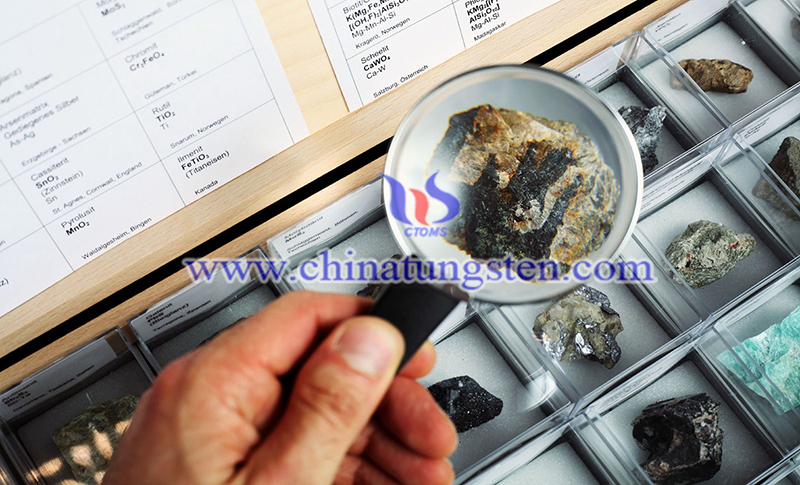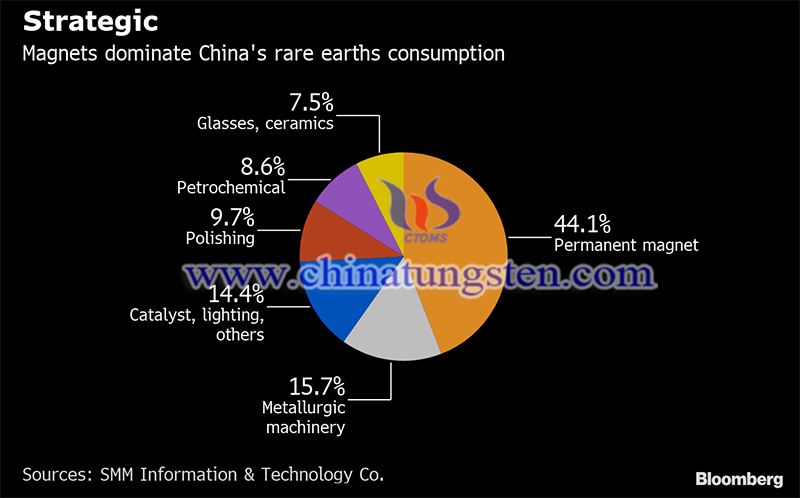China Accelerates Tungsten and Rare Earth Industry Transformation
- Details
- Category: Tungsten's News
- Published on Wednesday, 03 March 2021 21:18
China issued “Opinions” for supporting the revitalization and development of old revolutionary areas in the new era on February 20, 2021, which would greatly promote the transformation and upgrading of the tungsten and rare earth industry. The report pointed out that it will promote the construction of "China's Rare Gold Valley", to study the purchase and storage policy of medium and heavy rare earths and tungsten resources.
At the same time, our country encourages scientific research institutes, universities and old revolutionary bases to cooperate to build innovative platforms such as the Ganjiang Innovation Research Institute of the Chinese Academy of Sciences. And support the establishment of qualified regions technology transfer institutions to create a national demonstration zone for the transformation of scientific and technological achievements.

Tungsten (W) is not only a rare metal, but it is a very important strategic material. Its melting point is 3410±20°C, density is 19.35g/cm3, and it has the advantages of high hardness, high strength, low vapor pressure and high evaporation speed. At present, a series of electronic and optical materials, energy materials, catalyst materials, electrical equipment, lubricants, medicine and health, special alloys and organometallic compounds require this strategic material.
China is the country with the richest tungsten resources in the world. There are now 252 proven mineral deposits distributed in 23 provinces (regions), and its output ranks first in the world. The proven production areas of the deposits are mainly Xihua Mountain, Piaotang, Daji Mountain, Pangu Mountain, Huamei Ao, Hukeng, Xiatongling, Kaimei Mountain in Jiangxi Province, and Xingluokeng in Fujian Province, etc.
The rare-earth elements are a set of 17 nearly indistinguishable lustrous silvery-white soft heavy metals. Scandium and yttrium are considered rare-earth elements because they tend to occur in the same ore deposits as the lanthanides and exhibit similar chemical properties, but have different electronic and magnetic properties. These metals, in pure form, tarnish slowly in air at room temperature, and react slowly with cold water to form hydroxides, liberating hydrogen. They react with steam to form oxides, and at elevated temperature (400 °C) ignite spontaneously and burn with a fierce colorful pyrotechnic flame.

China is also rich in rare earth resources and is known as the "Kingdom of Rare Earths". At present, there are more than 60 mining areas with proven reserves, distributed in 16 provinces (regions), with Ganzhou being the most. The output of rare earth reserves accounts for more than 50% of the country, followed by Hubei, Guizhou, Jiangxi, Guangdong and other provinces. The release of the opinions would accelerate the development of the tungsten and rare earth industry to a large extent, thereby enhancing the country's innovation-driven development capabilities.
- Tungsten Manufacturer & Supplier, Chinatungsten Online: www.chinatungsten.com
- Tungsten News & Prices of China Tungsten Industry Association: www.ctia.com.cn
- Molybdenum News & Price: news.molybdenum.com.cn
- Tel.: 86 592 5129696; Fax: 86 592 5129797; Email: sales@chinatungsten.com



 sales@chinatungsten.com
sales@chinatungsten.com